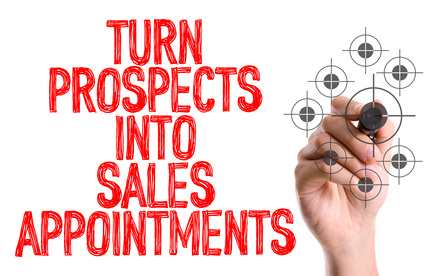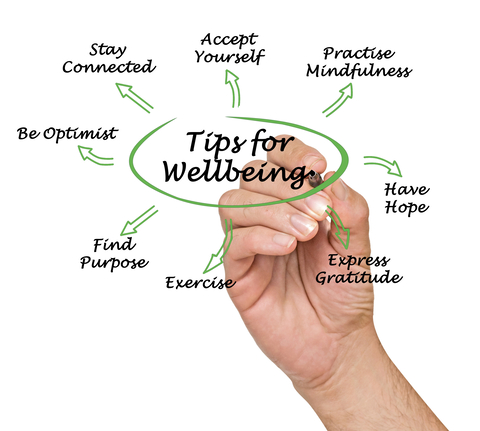Social Media Hacks For Agents
Every Real Estate professional should be on just about every social media platform available. One of the fastest growing social media sites to use in real estate is Instagram. What many agents don’t realize is that Instagram can be one of the most useful tools to grow their business…when used correctly.

Let’s boil down the best Instagram tips for real estate agents. Real estate is a visual industry. The old adage “a picture is worth a thousand words” is particularly true in the realm of selling properties. In the age of social media, no platform provides more potential for engagement through imagery than Instagram. But giving Instagram tips for real estate agents can be tricky, because a surprising number don’t even know where to start. This week I’m going to share with you some essential real estate Instagram tips covering everything from setting up your account to scaling your brand. But first, let’s start off by answering a question too many agents are still asking…
Is Instagram Good for Real Estate Agents?
The short answer is yes, but with specific strategies in mind. Instagram’s visual-first approach allows real estate agents to make properties memorable. The platform’s heavy use of location tagging, hashtags, and sharing features make it simple for an agent to gain exposure for their listings, as well as their personal brand. Because real estate is inherently local, using Instagram in a community setting can connect agents with potential buyers and sellers in their area.
How to Create a Real Estate Instagram.
Creating an Instagram account is so easy a child could do it, but don’t rush into it blindly, because you want to make sure that you set up a business account. This will allow you to track analytics, promote posts, and create a more professional appearance. If you already have a profile, you can convert it to a business account. Include a clear profile picture, preferably your professional headshot, and ensure your bio succinctly tells who you are, what you do, and how you can help potential clients. Add a link to your website or a landing page designed for Instagram traffic.
How to Advertise Real Estate on Instagram.
The key to advertising real estate on Instagram is to not look at it as an isolated thing; it’s about marketing your marketing and yourself as well as the property. The cohesiveness of your Instagram page (your brand) will help you far more than any single post. These are the things you want people to advertise on your page:
Your Listings on Instagram.
The quality of your marketing, your authentic personality, your knowledge must all be there. It’s not all about the homes! People want to work with a professional who knows their stuff and is going to get the job done, but they’re also FAR more likely to work with someone who they like and trust. Know/Like/Trust – that’s the name of the game. Strike that balance and you’re golden. I read a Placeter article not too long ago which had some awesome real estate Instagram dos and don’ts and I want to share a few of them with you, as well as add a couple of my own.
Do: Post your own photos & videos.
Your audience follows you to keep up on your listings, hear your thoughts, and see what your clients have to say about your business. By posting your own photos and videos, you emphasize your authenticity and show users that a real person is behind the account, not a corporate firm. Through original photos and videos, you can build trust and rapport with your clients and leads that can help you close more deals.
Don’t: Use or Alter Stock Photos.
If you’re not using beautiful photography and professional video clips then Instagram is not the place for you – and real estate might not be the right business. This is a marketing game, and what you post is not just advertising the home itself but your professional marketing services. Snap a few shots of your listings here and there to stockpile visual marketing collateral. However, stay away from using stock photos. Your followers can spot a stock photo from a mile away, which can easily deter them from engaging with your content, as it isn’t seen as original.
Don’t: Edit the Authenticity Out of Your Listing Videos.
Fixing bad lighting is one thing but avoid using various filters. The point is to show off the home as it is. The last thing you want is for a potential buyer to show up to your listing and not recognize the home because it’s drastically different from the one they viewed online. As always, stay honest, especially with the pictures you post. But with that said…
Do: Use AI to Enhance Your Content.
AI is the tool of the future. This is a time as monumental as the rise of social media or even the internet. You want to be on the cutting edge of it, and AI can help you do so many things such as creating video thumbnails, editing videos, stabilizing shots, fixing audio, adding voice overs, and so much more.
Don’t: Rely on AI Generated Content.
Remember, authenticity is everything. Why would you show off something that isn’t real at all?
Do: Get Past Clients to Participate in Testimonial Videos.
A great way to use Instagram for real estate is by showing your followers how you’ve helped people in similar situations. Getting previous clients to give a testimonial is an excellent strategy to build trust and show professionalism. Most clients will be happy to give a short 15-second blurb on what they loved about your business. Don’t be shy to ask them!
Don’t: Use a Million Hashtags or Inapplicable Ones.
Keep it classy. Using too many hashtags is one of the top social media mistakes. A long list of hashtags can come across as spammy and they take away from the focus of the post. Yes, you may get a few more followers but you run the risk of losing the ones you want and replacing them with randoms. Stick to a few relevant and popular hashtags. Instagram built in a 30-hashtag limit to prevent you from going too crazy.
Do: Automatically Share Most Photos to Facebook & Twitter.
Not every picture or video needs to be shared across every platform, but for most of them, why not? You can easily select which other social media sites you want to share pictures and videos on each time you post.
Do: Show Off Your Personal Side.
It’s okay to show off your fun side – the trick is moderation and knowing when to post such content. Posting a picture of your agency’s annual summer BBQ or a selfie with old clients can do wonders for your image. Just make sure these pictures tie into your day-to-day life!
Don’t: Give Up on Your Account! It Takes Time.
It takes time to build an audience on Instagram. Don’t get discouraged if it’s taking a while to gain followers. Having said that, if momentum is really stalled, it may be time to switch up your strategy and apply the tips we have given you. In time, you will find the kind of posts, hashtags, and post frequency that appeals to the audience you want.
Do: Get Serious About Your Social Media Marketing
Here is the big one… If you want to use your real estate Instagram to drive more business, then you have to get serious about it. One blog post isn’t going to make you the agent influencer in your market. Serious results come from serious plans and those require serious dedication. That said, it doesn’t have to take long… You could get everything you need in just one day. But you do need to step outside of your comfort zone and actually seek out help from those who know the way.
Strength and Courage,


















